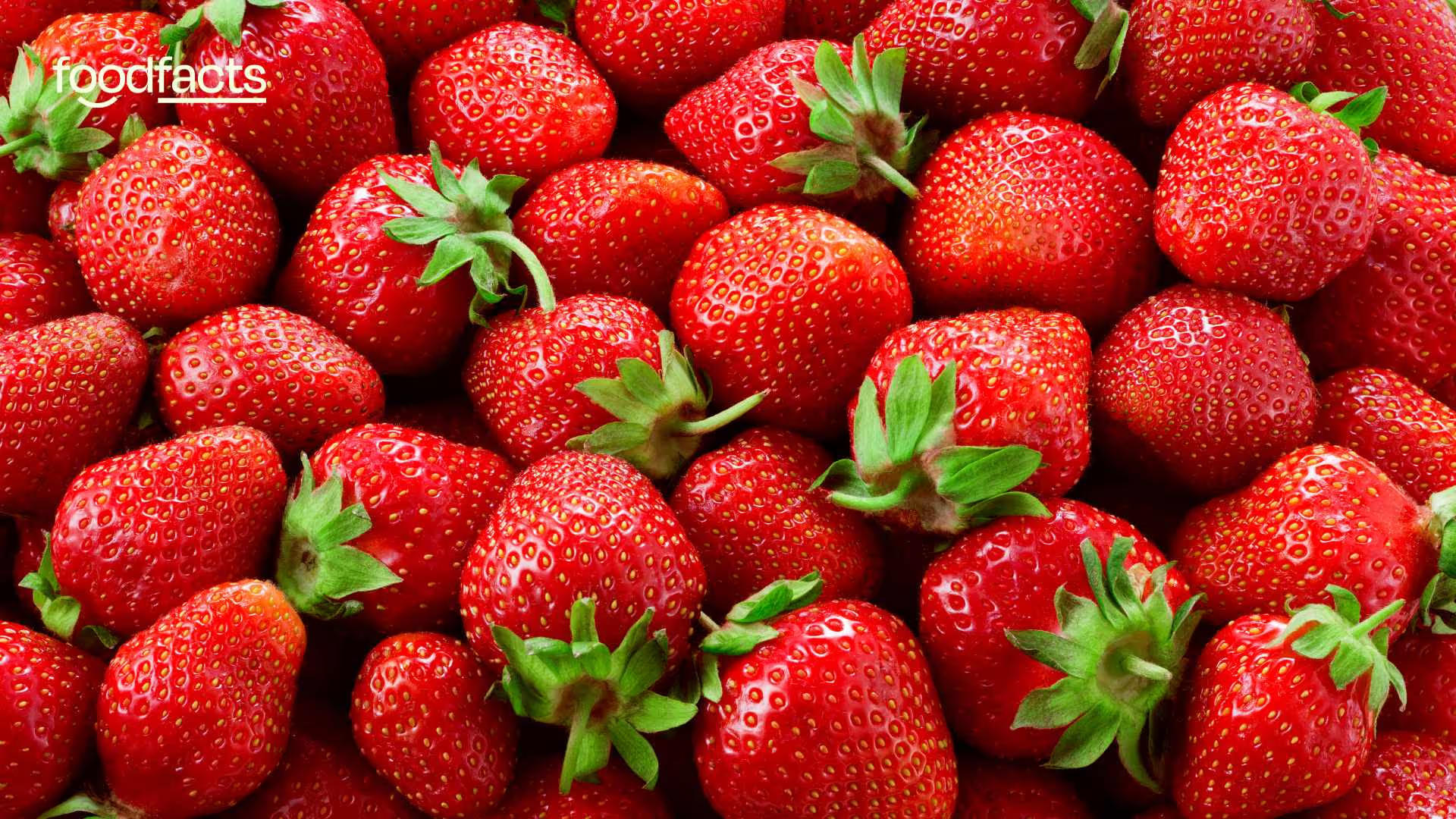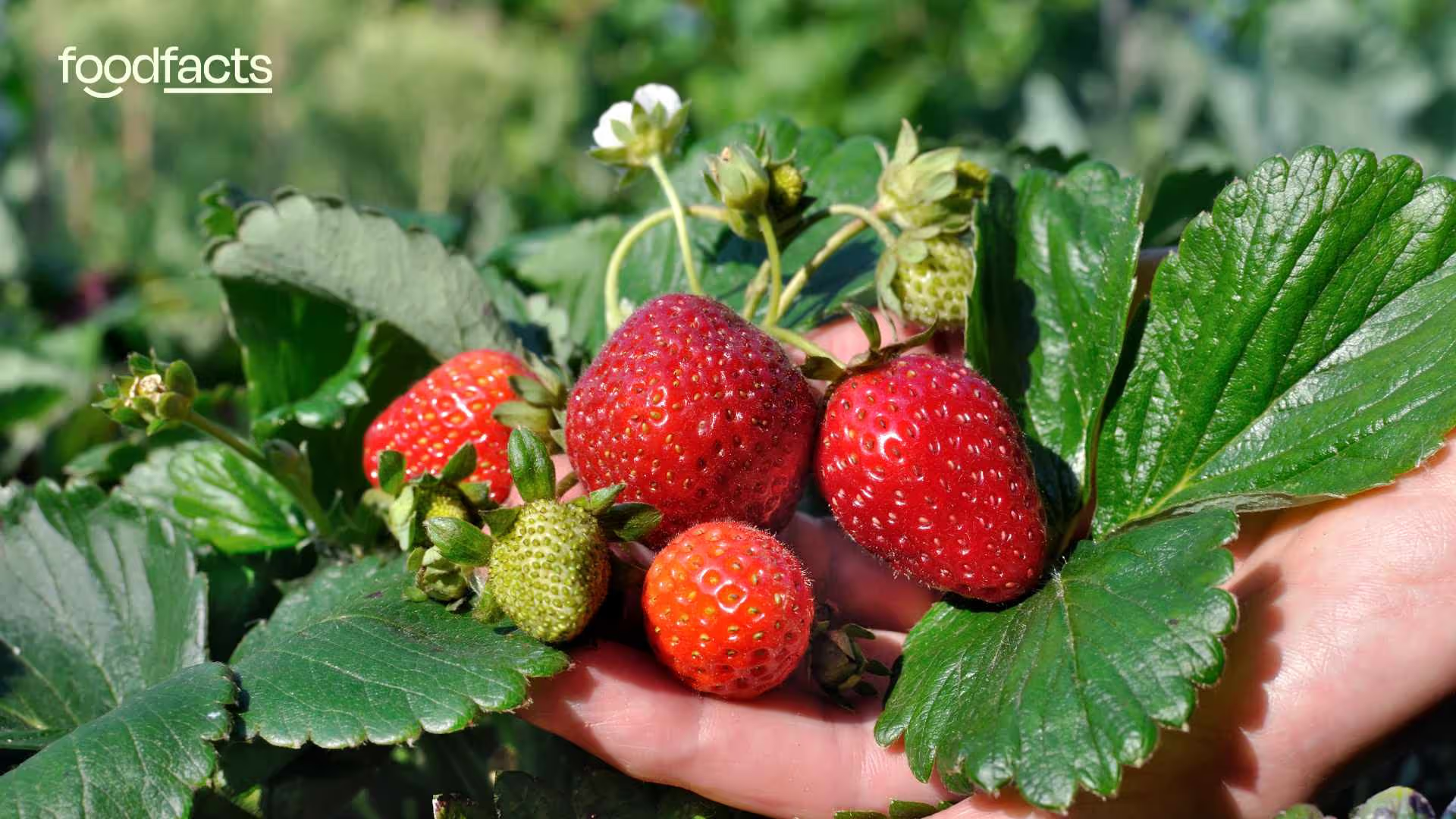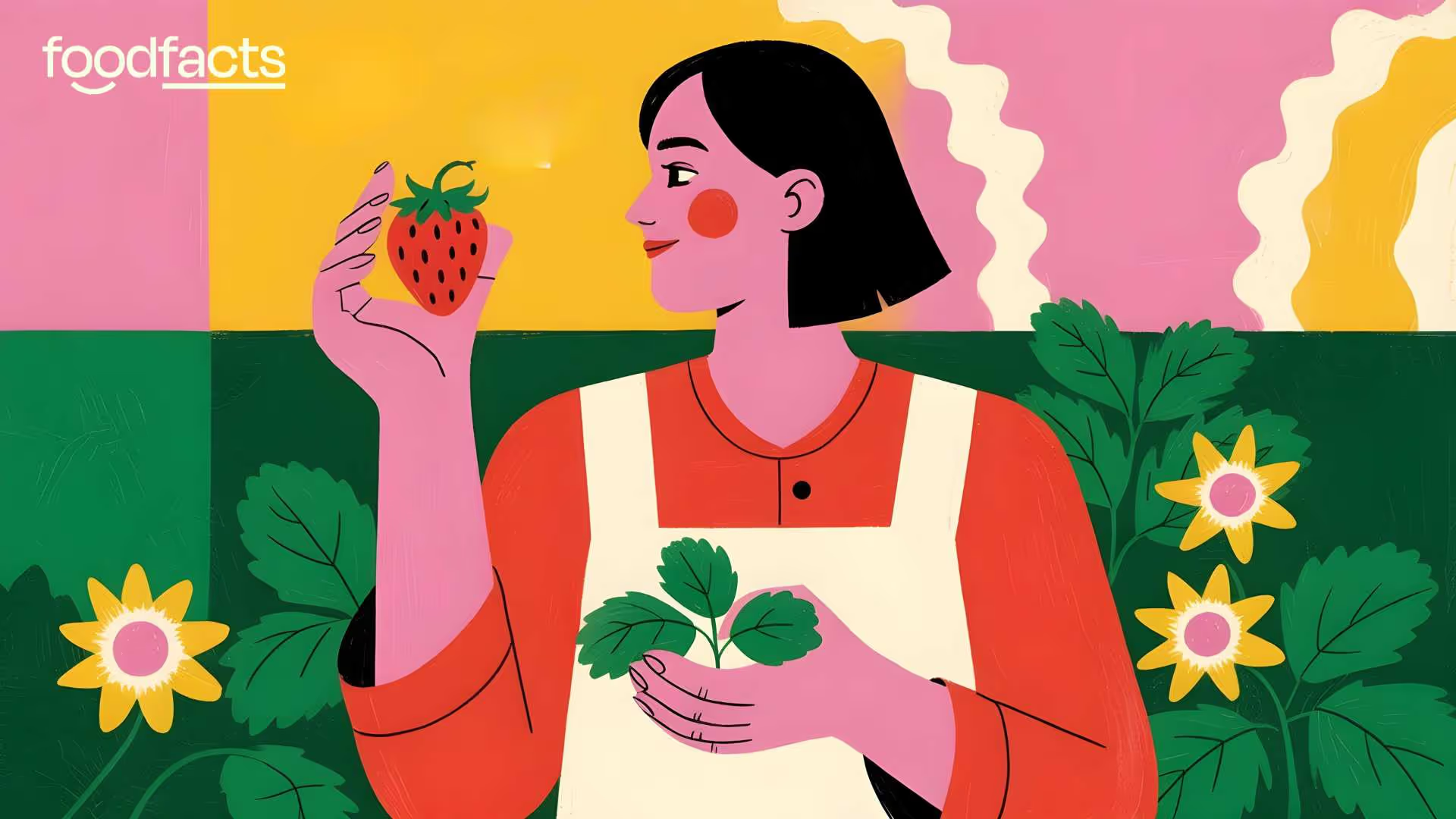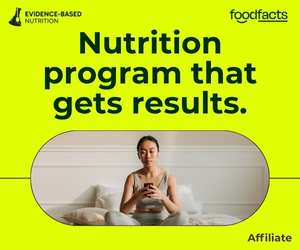
Are non-organic strawberries unsafe? Examining the evidence





Coral Red: Mostly False
Orange: Misleading
Yellow: Mostly True
Green: True
Learn more about our fact-checking policies
In a video posted on April 24th, Dr. Sam Watts claimed that a UK government study found 95% of strawberries sampled had pesticide levels exceeding safety thresholds, making them “arguably the most toxic food in your home.” We bring you a reality check, considering both the issues linked to pesticide residues on fresh food products, and the benefits of consuming strawberries.
The UK government's 2022 pesticide residue monitoring program found that 95% of strawberry samples contained residues; however 0% exceeded the legally established Maximum Residue Levels (MRLs). While concerns about the generally overwhelming presence of PFAS, otherwise known as ‘forever chemicals,’ are legitimate, concluding from this report that non-organic strawberries are unsafe to eat is misleading.
Understanding the nuances of official reports on pesticide residues is important for making informed dietary choices. Misinterpretations can lead to unnecessary fear, potentially discouraging the consumption of nutritious fruits like strawberries. This fact-check aims to clarify potential misconceptions, promoting balanced and evidence-based decisions.

Be cautious of absolute terms like "must" or "always" in health-related claims. Such language often oversimplifies complex issues and may not account for individual circumstances or the broader context.
Claim 1: A government study “showed 95% of all of the strawberries that were sampled in the UK had a level of pesticide toxicity that had [...] exceeded the threshold of safety.”
Fact-Check: The government study referred to did find that 95% of the samples analysed (111 out of 120) had pesticide residues, but these were at or below the Maximum Residue Level (MRL) set by law. However, 0% of samples contained residue that exceeded the MRL.
MRLs are set by the Health and Safety Executive (HSE). The following extract from the report mentioned by Dr Watts is useful to place those findings in context, without which consumers might make decisions based on fear rather than understanding:
“MRLs are set in law at the highest level of pesticide that the relevant regulatory body would expect to find in that crop when it has been treated in line with Good Agricultural Practice. When MRLs are set, effects of the residue on human health are also considered. The MRLs are set at a level where consumption of food containing that residue should not cause any ill health to consumers.” (source)
The report also clearly emphasises that MRLs should not be understood as health safety limits. They are designed to assess that the pesticides are being used correctly, and even if foods are over this limit, this does not mean that they are unsafe to eat. If a food has been found to contain residues above the MRL, a risk assessment is conducted to determine if there may be health concerns. If that is the case, the FSA will determine if further action is required (for example, if the foods in question need to be recalled). In most cases, there isn’t (source).
The implication that the report’s results mean that non-organic strawberries in the UK are not safe to eat is misleading.

Claim 2: Non-organic strawberries contain unsafe levels of PFAS, which are “linked to cancers, immune disorders, reproductive disorders, neurodegenerative diseases like Parkinson’s.”
Fact-Check: This type of claim is prevalent on social media, and can seem particularly alarming. It follows this structure: “Avoid this food; it contains [name of chemical/substance], which is linked to [list of serious health conditions]”. While some link might exist, without context those claims tend to exaggerate risks for consumers, and can lead to unnecessary fear.
Let’s start by defining PFAS before placing the claim in context.
What are PFAS?
Per- and polyfluoroalkyl substances (PFAS) are synthetic chemicals that have been used for decades in industrial and consumer products for their resistance to water, oil, heat, and stains (e.g., in non-stick cookware, water-repellent fabrics, firefighting foams, and some food packaging). Due to their chemical stability, they do not break down easily in the environment or human body, hence the nickname "forever chemicals." PFAS have also been found in certain pesticide formulations, either as active ingredients or as unintentional by-products of manufacturing. Importantly, this is not common to all pesticides, and regulatory bodies are currently investigating the extent of their presence and potential dietary relevance (source).
PFAS have been linked to a range of health concerns, including certain cancers, immune system effects, and metabolic disorders (source). However, much of the evidence comes from populations with higher-than-average exposures (such as contaminated water supplies), and research is ongoing to clarify the risks at the lower exposure levels typical for the general population (source).
The British government report did not find that non-organic strawberries contained unsafe levels of PFAS. It found that most of the samples tested contained residues, and it is true that non-organic strawberries are among the foods containing the highest level of pesticides. This does not mean that strawberries are ‘unsafe’, however; rather the main concern with PFAS is their overwhelming presence, and continued exposure over time, particularly for those with jobs that regularly expose them to pesticides.
The evidence tells us that the nutritional benefits of consuming fruits and vegetables, including strawberries, far outweigh the potential risks from low-level exposures (source), and this is the type of nuance that is often lost within social media narratives.

Is buying organic a ‘must’?
Lastly, Dr Watts says that if you consume strawberries, and particularly if your children do, you “must” buy organic. Is organic always better? Registered Nutritionist Rhiannon Lambert explains:
While it is true pesticides can build up if consumed in excess over time, the benefits of consuming the food outweighs this and most pesticides can be removed by simply washing your fruit and vegetables. (Lambert, 2024: 144)
While organic strawberries are less likely to contain synthetic pesticide residues and may be preferred by those seeking to minimise exposure, they are not always residue-free and are generally more expensive. This is an important consideration for many families. Besides, there is currently no evidence that eating organic foods is associated with better health outcomes (source).
Final take away
The framing of the messaging conflates the detection of any residue with exceeding safety thresholds and risks unnecessarily alarming the public. Fear-inducing messages around the consumption of popular fruits among children can do more harm than good. For example, one mum’s comment on the post expressed significant concern over having fed her daughter strawberries the day before seeing this video, emphasising “the guilt you think you are feeding them well.” This type of comment clearly shows the impact of this type of public messaging, which overlooks the many benefits of fruit consumption.
No food is perfect. If you go looking for something to criticise, you’ll always find it. But fear-driven messages like this only serve to distract from what decades of evidence makes clear: eating more fruit and vegetables, whether organic or not, is one of the best things we can do for our health.
We have contacted Dr. Watts and are awaiting a response.
Disclaimer
This fact-check is intended to provide information based on available scientific evidence. It should not be considered as medical advice. For personalised health guidance, consult with a qualified healthcare professional.
Stand Against Nutrition Misinformation
Misinformation is a growing threat to our health and planet. At foodfacts.org, we're dedicated to exposing the truth behind misleading food narratives. But we can't do it without your support.
Sources + Further Reading
For more information and tips on washing fruits and vegetables, see this website.
HSE (2024). “UK competent authorities for pesticide residues in food: annual report for 2022.”
NIH. “Perfluoroalkyl and Polyfluoroalkyl Substances (PFAS).”
Rogers, R.D. et al. (2021). “Advancing per- and polyfluoroalkyl substances (PFAS) research: an overview of ATSDR and NCEH activities and recommendations.”
Winter, C.K. & Katz, J. (2011). “Dietary Exposure to Pesticide Residues from Commodities Alleged to Contain the Highest Contamination Levels.”
European Food Safety Authority (2022). “The 2020 European Union report on pesticide residues in food.”
Donley, N. et al. (2024). “Forever Pesticides: A Growing Source of PFAS Contamination in the Environment.”



foodfacts.org is an independent non-profit fact-checking platform dedicated to exposing misinformation in the food industry. We provide transparent, science-based insights on nutrition, health, and environmental impacts, empowering consumers to make informed choices for a healthier society and planet.

Was this article helpful?









.avif)







.svg)
